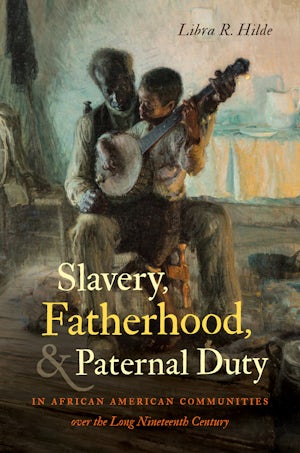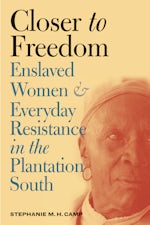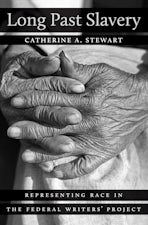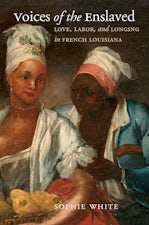Slavery, Fatherhood, and Paternal Duty in African American Communities over the Long Nineteenth Century
By Libra R. Hilde
410 pp., 6.125 x 9.25
-
Paperback ISBN: 978-1-4696-6067-7
Published: October 2020 -
Hardcover ISBN: 978-1-4696-6066-0
Published: October 2020 -
E-book EPUB ISBN: 978-1-4696-6068-4
Published: October 2020 -
E-book PDF ISBN: 979-8-8908-5950-1
Published: October 2020
John Hope Franklin Series in African American History and Culture
Buy this Book
- Paperback $39.95
- Hardcover $99.00
- E-Book $26.99
For Professors:
Free E-Exam Copies
Fatherhood highlighted the agonizing contradictions of the condition of enslavement, and to be an involved father was to face intractable dilemmas, yet many men tried. By telling the story of the often quietly heroic efforts that enslaved men undertook to be fathers, Hilde reveals how formerly enslaved African Americans evaluated their fathers (including white fathers) and envisioned an honorable manhood.
About the Author
Libra R. Hilde is professor of history at San Jose State University.
For more information about Libra R. Hilde, visit
the
Author
Page.
Reviews
“Hilde’s valuable contribution reminds us of the historical constraints imposed on Black man and fathers and of their heroic caretaking efforts in the face of it all.”—Journal of Southern History
“An important contribution to the historiographies of American enslavement and constructions of race and freedom after the Civil War . . . [that] adds to our understanding of how these constructions of race and gender continue to shape our most important public debates of today.”—Civil War Book Review
“Significant and sweeping . . . this book deserves a wide readership among scholars, their students, and in the broader community.”—Max Grivno, Journal of African American History
"Libra Hilde's study shows us how black men raised, loved, and provided for their children against all odds under the brutal oppressions of nineteenth-century American slavery and white supremacy. It specifically overturns the damaging stereotypes attached to black fatherhood and provides a novel framework for examining the lived experiences of black men during the transition from slavery to freedom in the post–Civil War era."--Tyler D. Parry, University of Nevada, Las Vegas
"This book offers a valuable counterpoint to the more copious existing scholarship on motherhood under slavery and helps to reframe outdated, but still widespread, popular misconceptions about black fatherhood and families."--Jeff Forret, Lamar University




